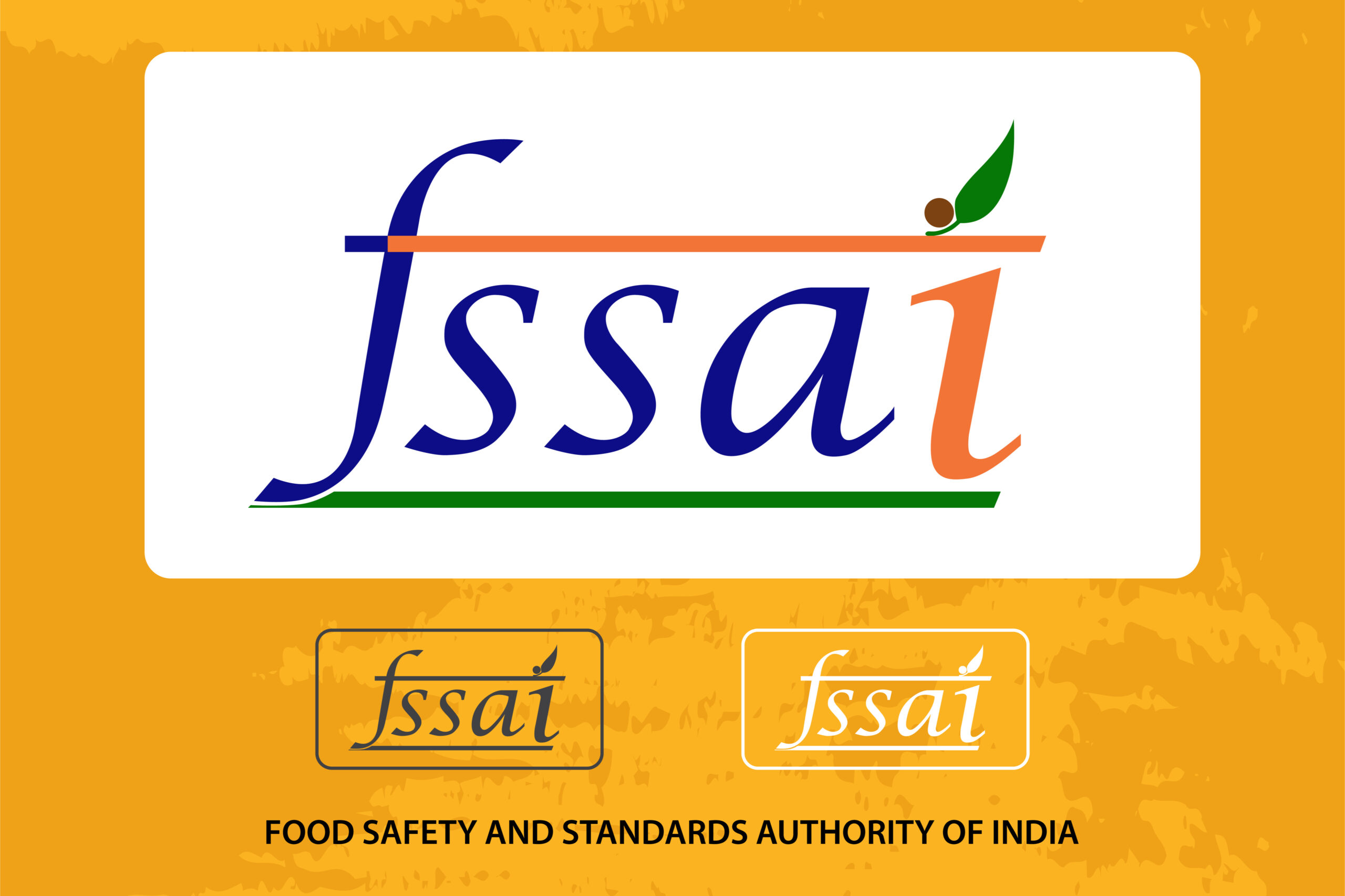The beverage industry in India, especially tea, is quite a thriving one. Given its popularity, the government has the responsibility to regulate the quality of the tea taken by consumers. This is done by the FSSAI and therefore the business owners should procure a license from the same.
Tea holds a special place in India’s tradition and culture, with the country boasting a substantial consumption rate, making its tea industry highly profitable. The burgeoning population has paved the way for numerous new tea brands to emerge. To ensure the quality and safety of tea amidst this growth, the Food Safety and Standards Authority of India (FSSAI) is implementing measures to regulate the production and sale of tea. Additionally, the FSSAI has issued guidelines outlining the regulatory framework governing the tea industry in India.
In 2021, it was estimated that India consumed 89% of the tea that was produced. Undoubtedly, it’s a huge number! It is anticipated that with a CAGR of 4.2%, the industry would make about 1.40 million tons in the year 2026. This incredible growth is predicted as a result of a large number of tea lovers present within the Indian subcontinent.
Every possible care has to be taken to check if the tea that reaches the hands of the consumers is free from adulteration and contamination. This is being kept in check by the Food and Safety Standards Authority of India (FSSAI), wherein it has released guidelines specifying the rules and regulations that tea businesses in the country need to adhere to.
Requirement of FSSAI License for Tea Business
The FSSAI oversees the regulation of all food-related businesses in India. Tea, being one of the most celebrated beverages, has the compulsion to be regulated by an authoritative body like the FSSAI. The FSSAI, therefore, takes the responsibility of laying adequate checks and balances in place to ensure that the tea sold is safe for consumption. Thus, the FSSAI plays an irreplaceable role in ensuring the public that the tea consumed by them has been scrutinised for the required quality and food safety protocol. It also helps in proving that the product is free from contamination or adulteration. Hence, approval from the FSSAI is indispensable if one wishes to kick start a new tea business. This is regardless of whether the owner wishes to market the brand locally or internationally by exporting the tea.
Varieties of Tea as per FSSAI
The varieties of tea can be categorised as shown below as stipulated by the FSSAI regulations:
- Tea –This constitutes the type of tea, other than Kangra tea. It includes tea leaves, stems, and buds of the plant Camellia sinensis. This variety brings all types of Black and Oolong tea
- Kangra Tea –This is a special variety of tea got from the buds, stems, or leaves of Camellia sinensis. This variety is predominantly seen in Kangra Mandi valleys. The tea grows widely in the foothill region of Himachal Pradesh and flaunts an exceptional flavor
- Green Tea –This variety is processed by rolling, drying, and inactivating the buds or leaves of certain varieties of Camellia sinensis.
Regulations Set by FSSAI for Tea Leaves/Powder
The FSSAI sets a few basic standards for tea products in order to be considered safe for human consumption. The tea products are expected to exhibit their characteristic flavor and aroma that is devoid of any unpleasant odor, mustiness, or taint. It should also be clean and free from any kind of insects dead or living, molds, insect fragments, and other contaminants like bodily waste of rodents, etc, that are visible to the naked eye. Furthermore, the product must exist in its natural form and therefore should be free from added colors and artificial flavors, other harmful substances, and foreign materials.
The product may however contain natural flavor and flavoring compounds that are acceptable for human consumption. The flavor has to be obtained through physical processes and should be of plant origin. The manufacturer must duly mention the addition of such flavors distinctly through labels and declarations as per the rules. Also, before marketing such flavored tea brands, the manufacturer should register the brand with the Indian Tea Board. The pectinase enzyme, an enzyme used for the extractions of juice from leaves, plants, and fruits can be used in the tea leaves up to a level of 0.2% for the purposes of processing the product.
The two main regulations set by the FSSAI for tea products are:
- Regulation 7.3.11- The marketing, offering, and sale of Kangra tea have several restrictions in India. All such processes should occur only after marking and grading the tea following the rules laid down in the Agricultural Produce Act, 1937
- Regulation 7.3.12- Only tea manufacturers registered and certified by the Tea Board may sell flavoured tea in India. Also, the label of such products must mention the items that have been added as flavouring agents. The label must also mention the manufacturer’s registration number and must follow the labelling conditions mentioned in the regulation
- Furthermore, all tea manufacturers should pack and label their tea following the FSSAI (Packaging and Labelling) Regulations, 2011. As per these regulations, the package must carry the stipulated information.
For more information also have a check on – FoSCos Registration
Labelling Requirement by FSSAI
Businesses that deal with the selling of tea locally and internationally must mandatorily follow the rules of labelling as stipulated by the FSSAI. The label has to exhibit all the relevant and important information before pushing the products to the market for sale.
- Product’s common name
- Manufacturer’s name and address
- Date of manufacturing
- Expiration Date
- Net Weight
- Ingredients details
- Additives
- Packaging Codes or Batch Number
- Country of origin if imported.
Furthermore, the label must be legible, readable, and understandable for the customers. The label should not describe any information that is untrue or deceptive or is likely to create any kind of confusion or create a false impression about the product in the mind of the consumer.
Compliance With FSSAI Licence for Tea Business in India
Before applying for an FSSAI license for your tea business, it is imperative to comply with the product labelling criteria set by the FSSAI department. The labelling process is critical as it ensures that all essential components and information are present before the product can be introduced to the market. As per the FSSAI license the following compliances requirements has to be met:
- Prohibition of colourants in tea by FSSAI
- Authorisation for using 0.2 percent pectinase enzyme to enhance flavour in tea
- Approval for the use of organic ingredients and natural food colouring
- Mandatory FSSAI Registration for tea businesses involved in production, marketing, and retail.
License for Tea Business-Conditions for Testing and Approval
The product has to undergo several levels of testing pertaining to food safety constraints before being introduced into the market. The tea products are sent for testing to the National Accreditation Board for Testing and Calibration Laboratories (NABL) to check if the products are quality compliant. The product has to obtain approval from NABL before it could be sent to the market for sale. The FSSAI regulations get updated at regular intervals with respect to the quality compliance of tea products. Therefore, business owners have to get themselves updated about the rules that are being set or changed frequently.
It is under these circumstances that a seasoned FSSAI consultant could help the business farewell by getting the license quickly. Our consultants at Vakilsearch could do a great deal in procuring the FSSAI license for various food-related establishments, let alone tea businesses. The comprehensive knowledge and nuances pertaining to the FSSAI regulations make it a cakewalk for us to get the required licenses before setting up the business. The professionals at Vakilsearch will hand-hold the business owners through the entire procedure, right from initial documentation to submitting the application. Getting acquainted with the right person could help one to set up the business with less trouble and can also avoid the unnecessary wastage of time and resources.
Guidelines and Requirements by FSSAI for Tea Industry
Prohibition on Colorants
The FSSAI strictly forbids the use of artificial colourants in tea. However, tea producers are permitted to utilise pectinase enzyme, up to a maximum of 0.2 percent, to enhance the tea’s flavour attributes
Authorisation of Organic and Natural Ingredients
Tea manufacturers have the authorisation to incorporate organic and natural food colouring ingredients in their products. This underscores the significance of utilising natural and wholesome components in tea production
FSSAI Registration
Tea enterprises engaged in production, marketing, and retail activities must obtain FSSAI registration. This process mirrors the registration requirements for other food-related businesses in India, ensuring compliance with FSSAI’s food safety and quality standards.
Other Licenses and Permissions Required for Tea Business in India
Fortunately, or unfortunately, an FSSAI license is not the only requirement for a tea business in India. The prerequisites have been changing quite frequently and one can get updated about these requirements from the official website. The various licenses and registrations that the businesses should procure have been listed below:
Business License or Food License for Tea Business as per the Tea Control Order, 2005: To apply for the same, the manufacturer should submit Form A to the concerned Licensing Authority. Once granted, the license is valid for three years, after which the applicant has to duly renew the license. The manufacturer will have to pay a processing fee worth ₹1000 to obtain the food license. To convert the same into a permanent license, the manufacturer will have to submit Form B.
The manufacturer must fulfill the following criteria to obtain a permanent license:
- The manufacturer must be an exporter of tea products
- The licensee should not have violated any law under the Tea Act, 1953, Tea Rules, 1954, Tea Board Bye-Laws, 1955, or any Order under the Tea Act
- The volume of tea exported does not exceed 1,00,000 kgs annually
- Business registration or incorporation, like public or Private Limited Company
- GST Registration for tax purposes
- Provident Fund Registration if you have more than 20 employees
- Employee’s State Insurance Registration if there are more than ten employees
- Environment Clearance Certificate or NOC from the State Pollution Control Board
- Approval from Health Department to ensure food safety compliance
- Registration with the Tea Board
- Exporter’s License under the Tea Control Order and the IEC code from the Director General of Foreign Trade (DGFT) to carry out the import and export of tea products
- Tea Distribution License, if required
- Tea Waste License to curb the misuse of tea waste and to take adequate care to check if it is disposed off appropriately
- The License for Tea Warehouse as per the Tea Warehouse Order 1989 through submission of Form A.
However, a license is not required in the following cases:
- Tea exported by the Central Government: https://www.teaboard.gov.in/home or the Indian Tea Board
- Shipped by post as a parcel
- Tea exported for personal use by passengers
- Tea exported for non-commercial purposes
- Tea shipped as samples for foreign buyers.
Click Here to Get FSSAI Licenses Registration for your Tea Business
Conclusion
Due to the larger number of tea enthusiasts in India, the tea industry thrives there. However, compliance with FSSAI regulations is essential for maintaining business operations. Every tea business operator in India must obtain an FSSAI license to engage in manufacturing, repackaging, trading, retailing, distributing, wholesaling, or providing tea. The specific type and size of the tea enterprise determine the required FSSAI registration.
Frequently Asked Questions
Do you need a license to sell tea in India?
In India, tea distributors must get a license to sell tea in the market, which guarantees adherence to the quality standards established by the Tea Board of India.
What are the specific requirements of tea by FSSAI?
To register your Tea Shop Business Plan, the manufacturer must submit Form A to the relevant Licensing Authority. Once granted, the license is valid for three years and can be renewed for another three years thereafter.
What license is required to open a tea shop?
A tea shop needs to have both FSSAI registration and a fire license.
Does tea need FDA approval?
The FDA oversees the tea market just like any other food market since tea is classified as a food product.
What are the permissions and licenses required for manufacturing tea?
The Tea Board of India license is compulsory for individuals intending to engage in the manufacturing, processing, blending, or exporting of tea within India. This license ensures that customers and importers receive tea of exceptional quality, produced in accordance with regulatory standards, instilling confidence in the product.
Also, Read;









